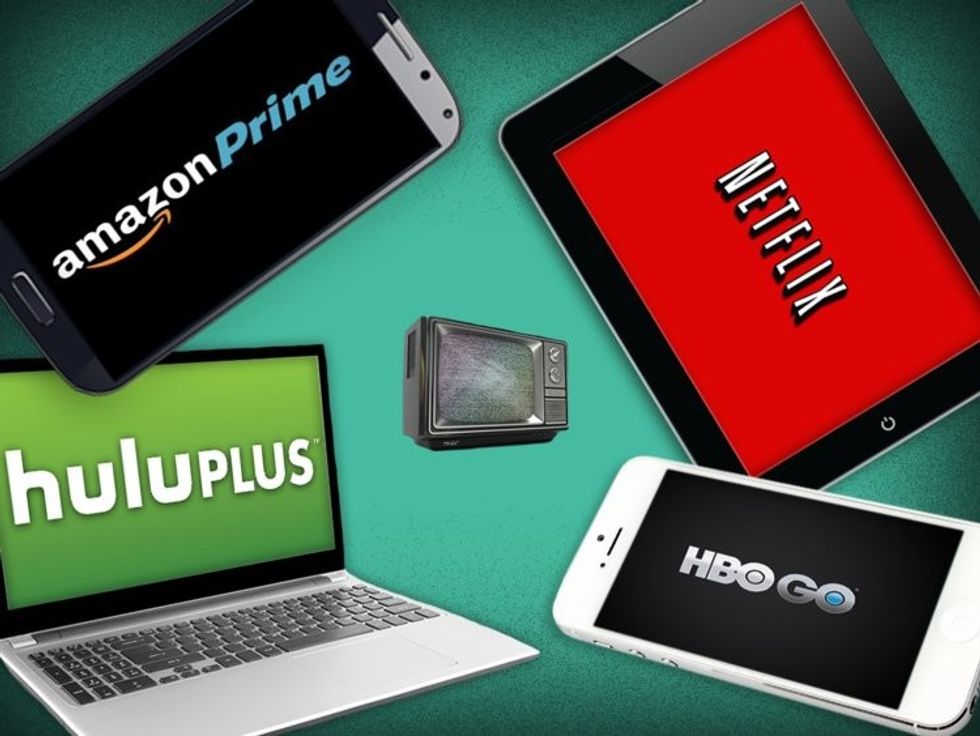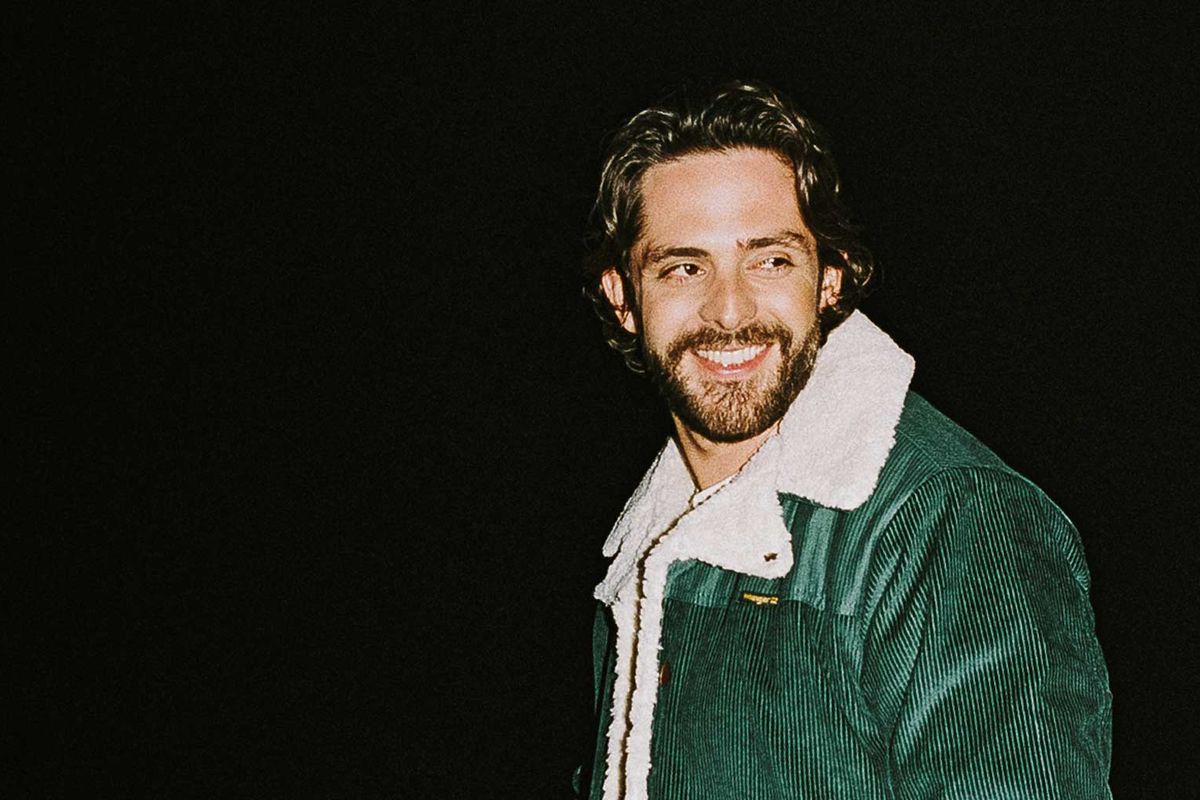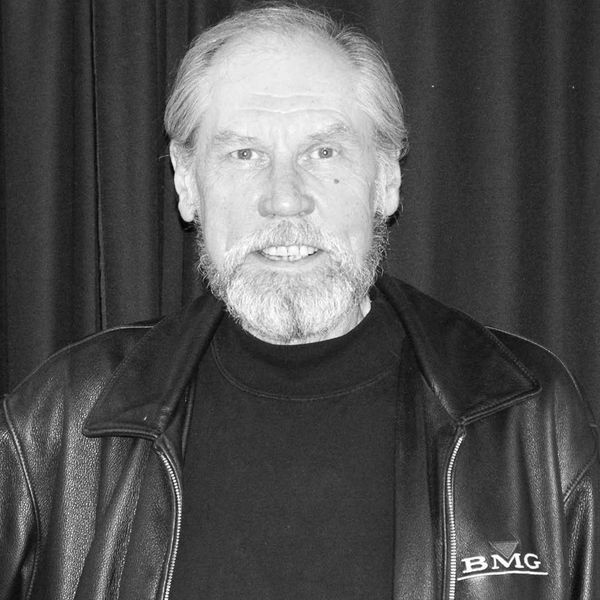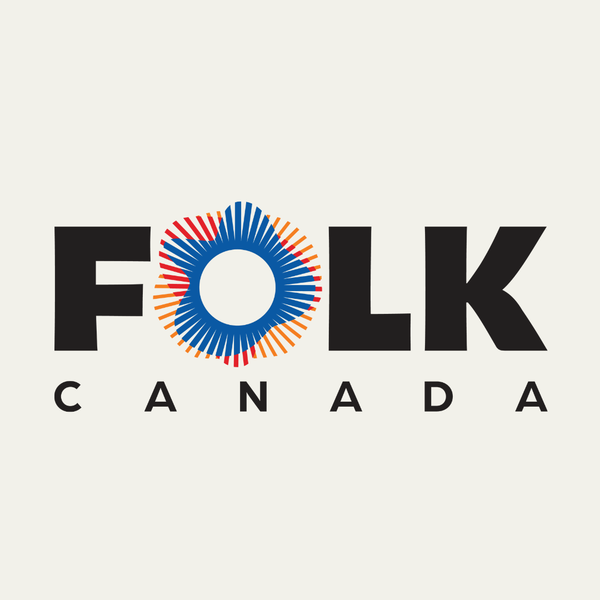
By David Farrell
US TV ad spending to fall in 2018
With cord-cutting accelerating and over-the-top (OTT) viewing on the rise, outlays on TV ads will slip 0.5% in 2018 to $69.87 billion, according to eMarketer’s latest US advertising forecast. As a result, TV’s share of total US media ad expenditures will drop from 33.9% in 2017 to 31.6% this year.
“The shift of audiences to OTT viewing is changing the climate of the TV ad market,” said eMarketer senior forecasting director Monica Peart. “As ratings for TV programming continue to decline, advertiser spending will also continue to see declines, especially in years that do not boast major events such as presidential elections and Olympic games.”
1 in 4 anglophone Canadians have no TV subscription, over half use Netflix: report
One in four anglophone Canadians have cut the cord or are so-called “cord nevers” and don’t pay for a traditional TV service, while just over half are Netflix users, according to a report by the Media Technology Monitor.
Based on telephone surveys with 4,156 Canadians conducted by Forum Research Inc., between Sept. 27, 2017, and Dec. 8, 2017, 73 percent said they had a TV subscription, which was down from the 78 percent who said the same in 2016. – The Canadian Press
Whistleblower Christopher Wylie at one time had funding from Canadian government
The New York Times digs into the Canadian whistleblower’s research activities and turns up some troubling facts that have upset political apple-carts in the UK, the US and threaten to throw mud in the faces of some of our own political candidates.
With its stock in the dumper, Corus Entertainment is cutting more staff
CKNW, Vancouver’s longtime talk and news radio mainstay, is getting a big shuffle.
A trio of veteran voices, Jon Hall, Jeremy Lye and Tim Dickert, were let go on Tuesday. The station’s newsroom will no longer be downtown at the station’s TD Tower studios and will be integrated into Global B.C.’s operation in Burnaby.
The station’s talk shows will continue to be produced downtown. The studio has occupied two floors at the TD Tower in recent years; how the smaller downtown presence will be configured is unknown.
Station owner Corus Entertainment cuts jobs at their properties across the country, according to reports. – Vancouver Sun
Facebook buys print ads to apologise for Cambridge Analytica scandal
In a move that can be classified as nothing else but ironic, Facebook has taken its apology offline and bought print ads in major newspapers across the UK to apologise for the Cambridge Analytica scandal.
The social platform took out several full-page adverts on the pages of the UK’s largest newspapers - The Observer, The Mail on Sunday, Sunday Times, Sunday Telegraph, Sunday Mirror, and Sunday Express.
The ad said: "We have a responsibility to protect your information. If we can’t, we don’t deserve it. You may have heard about a quiz app built by a university researcher that leaked Facebook data of millions of people in 2014. – Ad News
Website Blocking Plan “Raises Serious Inconsistencies” With Canada’s Human Rights Obligations
The United Nations Special Rapporteur on the Right to Freedom of Opinion and Expression has filed an intervention with the CRTC expressing concern with the Bell coalition’s website blocking plan, which he confirms “raises serious inconsistencies with Canada’s obligations under Article 19 of the International Covenant on Civil and Political Rights and related human rights standards.” Special Rapporteurs are independent human rights experts with mandates from the Human Rights Council to report and advise United Nations Member States on human rights issues. While many supporters of the blocking plan have dismissed freedom of expression concerns, David Kaye, the expert the U.N., tasked with making recommendations to member states, warns that it may violate Canada’s human rights obligations in several ways.
The Special Rapporteur’s concerns, many of which were echoed in submissions critical of the blocking plan (I identified similar concerns in my post on the issue and in my submission to the CRTC that should be posted shortly), focus on the lack of proportionality, the risk of over-blocking, and process shortcomings with the proposed website blocking agency. – Michael Geist blog
Fact checking Michael Geist’s criticisms of the FairPlay site blocking proposal
The FairPlay coalition comprising more than 25 organizations representing hundreds of thousands of members of Canada’s creative community made a reasonable proposal to the Canadian Radio-television and Telecommunications Commission (CRTC), Canada’s telecommunications and broadcast regulator, to address the scourge of online copyright infringement. The proposal, which involves website blocking, was immediately attacked by anti-copyright activist Michael Geist (“Geist”) in a series of articles and interviews. As I showed in a prior lengthy blog post, his criticisms were unfounded and overblown.
Geist has renewed his attack on the proposal in new series of articles that expand upon his previous and other themes. His criticisms do not withstand scrutiny. They are based on inaccurate and misleading facts and arguments, unsubstantiated and incorrect assertions about international norms and Canadian and international law. He makes selective and misleading use of references and quotations and relies on cases that have been overturned or superseded by subsequent courts – Barry Sookman blog
Corus names Dunner its new podcasting champ
Corus Radio’s Digital Director Chris "Dunner" Duncombe has been named to the newly created position of Director, Streaming and Podcasting.
In his new post, In the role, he will lead a new team working to turn existing radio and news content into podcasts, creating original shows, and monetizing products with digital ad insertions.
“We couldn’t be more excited to signal our commitment to what is a rapidly growing area for both audience and advertisers,” said news and radio Sr. VP Troy Reeb, for parent company Corus Entertainment. “As the former Director of Digital for Corus Radio and a former senior Program Director, Dunner brings a wealth of experience and expertise to the role. He will be assembling a team to leverage both Corus’ own brands and talent, as well as external providers, to build Corus into Canada’s source for high-quality, on-demand audio.”
It's time the CRTC revisit its regulatory exemption for digital media
In 2009, the decision fell unanimously: the eight CRTC advisers renewed the digital media exemption order. As a result, digital media, such as Netflix, can continue to operate on the web without having to broadcast Canadian content or help fund Canadian productions.
Nine years later, voices are rising for the regulation of digital media like Netflix, CraveTV, ICI Tou.tv and Club illico. Voices such as former CRTC vice-president Michel Arpin and former CRTC advisor Louise Poirer, who both sat in hearings in 2009. Almost a decade later, they both changed their minds. Opinion: digital media must have obligations in the same way as TV channels or TV distributors.
Mr. Arpin, who was vice-president of broadcasting of the Canadian Radio-television and Telecommunications Commission (CRTC) from 2005 to 2010, believes that the exemption order granted to digital media is no longer justified. – Vincent Brousseau-Pouliot, La Presse
Fagstein’s Media News Digest
At the CRTC
- Notice of hearing (a formality) for the following:
Wow Unlimited Media is acquiring Comedy Gold from Bell Media for $6,866,892 worth of shares in Wow (about 12% of all shares). As an independent channel, Wow is requesting its Canadian programming expenditure quota be lowered from 30% to 10% and its “programs of national interest” quota be eliminated. Bell’s share of Wow will give it a seat on the board, and it will name Mike Cosentino, President, Content and Programming, to fill that seat. According to Comedy Gold’s 2016-17 financial disclosure, it had $1.59 million in subscription revenue and $1.43 million in ad revenue, $570,635 in programming expenses ($201,979 Canadian), and $2.02 million in net income. It had 616,747 subscribers.
advertisementNewcap buying CKEC-FM and CKEZ-FM New Glasgow, N.S., from Hector Broadcasting, for $2.7 million
Northern Radio Corp. buying CJBB-FM Englehart, Ont., from 1353151 Ontario Inc. for $100,000
Rogers buying CJCY-FM Medicine Hat, Alta., from Clear Sky Radio for $4 million
A new national pay radio service with 68 channels
New radio stations:
Lachute, Que.: LS Telcom, 300 watts, 101.7 MHz, French Christian music
Kipawa, Que.: Kebaowek First Nation, 6,000 watts, 104.1 MHz, English-language Native music and talk (some of which is Algonquin)
Esterhazy, Sask: 5777152 Manitoba Ltd., 50 watts, 99.5 MHz, English country, pop and rock music
Cochrane, Alta.: Golden West Broadcasting, 10,000 watts, 91.5 MHz, hybrid Country music (replacing a retransmitter of CFIT-FM Airdrie)
Saskatoon: International Harvesters for Christ Evangelistic Association, 2,000 watts, 103.1 MHz, Christian music
Kelowna and Kamloops: International Harvesters for Christ Evangelistic Association, 4,200 watts, 88.1 MHz, Christian music
The commission has approved a schedule for testing of new wireless emergency alerts. The alerts, which begin April 6, will be on all LTE-or-better smartphones. There will be five tests a year, though only one of them, during emergency preparedness week, will be visible to end users. – Continue reading here
Doug Ford says he will overreach and slash CBC funding
The new leader of Ontario’s PCs thinks he can cut funding for something Ontario doesn’t actually pay for?
Responding to Ontario’s 2018 budget Wednesday, Doug Ford raised fresh questions about his basic understanding of the issues when he offered reporters a nonsensical suggestion about how he could save Ontario money: cut funding for the CBC.
The only problem with that idea? The Province of Ontario doesn’t fund the CBC – that’s the federal government’s job. – Press Progress
Alexa can now take over DVR duties
A new update for Alexa will give the Amazon voice assistant will let Alexa interact with DirecTV, TiVo, DISH, and Verizon services to record shows with a voice request.
Rather than fumbling through menus with your remote, you can now just say “Alexa, record the Mariners game,” and it will be cued up and ready to view when you return home.
TuneIn Live launches a discounted audio subscription for Alexa and Amazon Prime customers
The subscription content comes from TuneIn partners like MLB, NBA, NHL, and the NFL, as well as news stations like CNBC, MSNBC, Al Jazeera, Newsy, and others.
The broader TuneIn service also pulls in content from over 120,000 owned and operated as well as partner radio stations, and 5.7 million on-demand programs. – Tech Crunch
Podcast startup Wondery lands $5M in Series A funding
The podcast network founded by former longtime Fox exec Hernan Lopez, closed the deal with venture-capital firms Greycroft, Lerer Hippeau Ventures, and Shari Redstone’s Advancit Capital leading the new round that brings the LA-based firm’s capital drive to $8M. Other investors include 20th Century Fox, BAM Ventures, Water Tower Ventures, Fox Networks Group, BDMI and industry execs including Stanley Shuman, senior adviser to Allen & Co. and former director of News Corp, and MediaLink CEO Michael Kassan. – Variety
Sinclair News offers an Orwellian newscast
Earlier this month, CNN’s Brian Stelter broke the news that Sinclair Broadcast Group, owner or operator of nearly 200 television stations in the US, would be forcing its news anchors to record a promo about “the troubling trend of irresponsible, one-sided news stories plaguing our country.” The script, which parrots Donald Trump’s oft-declarations of developments negative to his presidency as “fake news,” brought upheaval to newsrooms already dismayed with Sinclair’s consistent interference to bring right-wing propaganda to local television broadcasts. – Crooks & Liars
Ready for Trump TV? Inside Sinclair Broadcasting’s plot to take over US local news
Its mix of terrorism alerts, right-wing commentary, and “classic propaganda” could soon reach three-quarters of US households.
After a campaign season spent boosting Trump, Sinclair looks set to grow even bigger thanks to the president’s appointees at the Federal Communications Commission: In May, the company announced a $3.9 billion deal to acquire Tribune Media’s 42 TV stations, which would give Sinclair access to New York, Los Angeles, and Chicago, the nation’s three largest media markets. The deal—and, for many, Sinclair itself—came to prominence after John Oliver blasted it in an episode of his HBO show, Last Week Tonight, that has been seen more than 6 million times on YouTube. Experts believe the FCC will approve the merger, despite critics on the left and right who argue the deal will give Sinclair far more reach into American households than the law allows. – Mother Jones
With FCC approval, all systems are go for Starlink global internet
Not satisfied with merely ferrying cargo to and from the International Space Station (and putting a red Tesla into orbit around Mars), SpaceX now wants to provide high-speed internet to everyone in the world.
SpaceX CEO and flamethrower enthusiast Elon Musk envisions Starlink as a network of thousands of satellites in Low Earth Orbit (LEO) that will provide broadband internet access to the entire planet. That plan took a big step forward this week when the Federal Communications Commission (FCC) approved the company’s request to provide broadband satellite services. – Digital Trends
Why your radio station should switch to a secure website
In the wake of recent revelations about the way Facebook data has been used, the general public is expressing increased concern over data privacy. This concern will impact radio stations, as listeners will come to expect that any data they provide through their favourite radio station’s website will be kept secure. In light of these concerns, it is more important than ever that radio stations secure their websites.
When we talk about “secure websites,” we mean that the data passed between the computer that a website originates from and the computer with the browser displaying the site is scrambled. If somebody else accesses the data as it is passed from one computer to the other, they will only be able to see a string of characters, and they will not be able to make any sense of it. – Seth Resler, Jacob’s Media
For your reading pleasure
The Ad Contrarian
It’s All My Fault: I did a word count. Facebook’s terms and privacy policies are longer than the U.S. Constitution.
I’m not the brightest star in the galaxy, but I didn’t seem to have much trouble understanding the Constitution. But Facebook’s terms? I tried to keep track of everything I didn’t quite understand and by official count it came to somewhere around everything.
But, you see, that’s not Facebook's fault. It’s mine. If I were a responsible consumer I would drop what I’m doing and study their terms and policies until I understood them completely before I used their platform.
And not just Facebook’s, but every website I visit, every app I use, and every upgrade I download. And if there happens to be anything their legal departments concocted that I don’t understand I should have my team of attorneys review it and explain it to me. That shouldn’t take much time or money. This is all my responsibility.
Or so it seems according to a disturbingly misguided opinion piece called “What Facebook Data Did They Get And What Did They Do?” by some tech genius in Ad Age recently. He bills himself as (god help us) "LinkedIn's No. 1 Voice in Technology" and apparently thinks the correct interpretation of the Facebook/Cambridge Analytica shit storm is to blame the victims. Here's what "the voice" had to say...
“Just because you did not take the time to learn how you were paying for a tech service and you thought it was "free" doesn't mean it is actually free…”
Well, I’m terribly sorry for my prodigious stupidity. Apparently, in addition to being stupid, I am also inept. All this stealing of my private information is due to my incompetence...
“What you should be configuring is your "Personal Data Sharing Permission Settings" or "API Endpoint Permissions.”
Dude, how about taking your API Permissions and configuring them neatly in your own Endpoint?
“As a society, we have to raise our level of data maturity.”
Now, here he has a point. I do lack maturity. Data or otherwise. To be honest, I’m about the most immature bastard you’ll ever meet. And as an official card-carrying immature bastard, I’m about up to here with tech and data creeps telling me that the fraud, corruption and despicable horseshit going on in their poisonous world is my fault.
It’s not the lying, criminal scumbags who collect personal private information about me without my consent or knowledge who are at fault. It’s not the squids who peddle my info to every living weasel with a bitcoin.
Heck no, it’s my fault. Because I “didn’t take the time to learn…” and I "should be reconfiguring"... and I need to "raise my level..."
The corrupt online ad industry, the data collection maniacs, and the useful idiots who apologize for them are not the problem. Endangering the privacy and security of individuals and the integrity of democratic processes are not the problem.
Nope. According to these hotshots, I am the problem. And like all troublesome, self-respecting problems, I have absolutely no intention of going away.
And from Bob Hoffman’s always hysterically funny newsletter…
Ad fraud off the charts: In one of the most imprudent announcements in years, the ANA (Association of National Advertisers) congratulated itself a while back on having achieved a 10% reduction in ad fraud in 2017.
"The fraud decline is particularly impressive recognizing that this is occurring when digital advertising spending is expected to increase by 10 percent or more."
According to their calculations, global ad fraud dropped from $7.2 billion in 2016 to $6.5 billion in 2017.
The ANA announced this despite unmistakable indications that ad fraud is growing ferociously and is completely out of control. Every reputable independent ad fraud expert I know peed their pants laughing at this bullshit. Now there's some serious data indicating how ludicrously delusional the ANA and the marketing industry are.
A new report released by Adobe last week indicated that actual losses to ad fraud may be 10 times the ANA's number. The Adobe study, reported in The Wall Street Journal, claims that...
"...about 28% of website traffic showed strong “non-human signals,” leading the company to believe that the traffic came from bots or click farms."
Using Adobe's 28% number and projecting this out over $237 billion in estimated online ad spending this year (WARNING: COPYWRITER MATH COMING UP) I calculate that online ad fraud may reach $66 billion in 2018. This is astonishing, even to an old hysteric like me.
And it may even be higher. The Adobe calculation is based on the signals that Adobe can detect. Since the fraudsters are always one step ahead, it is reasonable to assume that there is some undetected fraud. Praneet Sharma CTO of Method Media Intelligence says, "Avoiding detection will be the major obstacle that fraudsters will present."
According to another ad fraud expert, Dr. Augustine Fou, "No matter what you are hearing or reading about digital ad fraud, I can assure you it's actually worse than you think."
Ya know, ten billion here, ten billion there...it starts to add up.
ANA's Appalling Hypocrisy
I'm not finished with these ANA (Association of American Advertisers) bozos...
After two weeks of wisely keeping their stupid mouths shut about the Facebook/Cambridge Analytica shit show, the ANA couldn't control themselves and issued a press release this week that was thrilling in its hypocrisy.
These are the people who lined up with the 4As and the IAB to kill the FCC's privacy regulations for broadband providers.
Listen to this horseshit...
"Our industry has a responsibility to strengthen consumers' fundamental rights to privacy" and "Transparency must be our industry's cornerstone principle"
Really? That's great. So, please Mr. P&G and Ms. Pepsi, since you are so committed to privacy and transparency, I would like to know...
- what data do you have on me?
- where I can find out what you're doing with it?
- I would like to know who you share it with and what they do with it?
- If it's not too much trouble, I'd also like to know who you are buying information about me from?
- And, by the way, are you selling any information about me?
Your commitment to pretending to care about privacy and transparency is very heartwarming. (See, I can lie, too!)
BTW, congratulations to the 4As. Despite their equally irresponsible stance on privacy and transparency they have the good sense to keep their mouths shut.

















